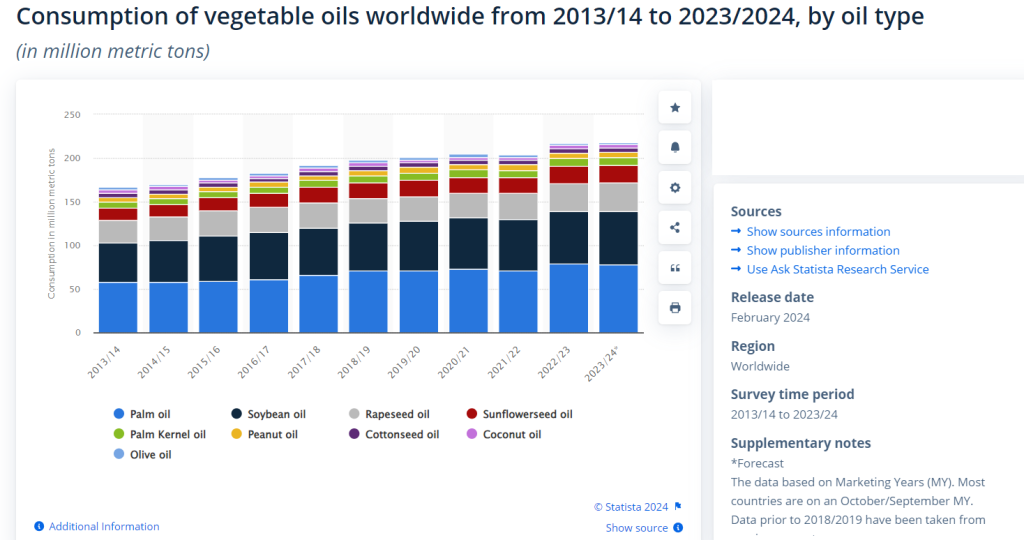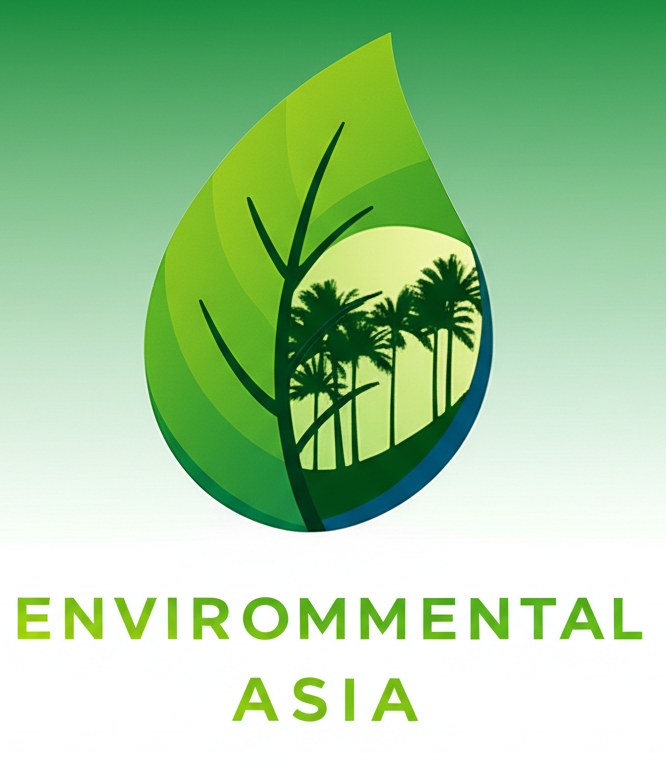Compiled by
Happy Tarumadevyanto | Independent Consultant | Environmental Asia | happy.devyanto@environmental.asia
The European Union (EU) Deforestation Regulation (EUDR), which took effect on June 29, 2023, stipulates that starting December 30, 2024, operators and traders must ensure that the production and procurement of key commodities comply with the legal sourcing regulations of the country of origin.
Indonesia still Questions on The Implementation of EUDR
Indonesia together with 13 (thirteen) other members of the World Trade Organization (WTO) again raised issues related to the implementation of the EU Deforestation Regulation at the WTO TBT Committee Session which was held on Wednesday – Friday, (13 – 15 March 2024). In a statement delivered by the Indonesian Delegation on Thursday (14/03/2024), the EU Deforestation Regulation policy was considered to have the potential to violate WTO rules because it is one-sided and discriminatory and creates unnecessary trade barriers.
Indonesia Government vs Indonesia-based NGO
Jakarta – Deputy II of the Executive Office of the President (KSP), Abetnego Tarigan responds to the importance of the issue of the Europe Union Deforestation Rules (EUDR). He said that the EUDR is a challenge for various commodities with deforestation footprint, and at the same time an opportunity for sustainable products to become more competitive. The implementation of EUDR itself has an impact on the export of plantation commodities in Indonesia, including palm oil as a strategic commodity.
“The existence of the EUDR issue should not trap us. Our unpreparedness in responding to EUDR must be anticipated, especially regarding legality and sustainability issues,” said Abetnego.
In anticipation to the implementation of the EUDR, Abetnego continued, the Government of Indonesia has taken various steps to realize sustainable palm oil commodities, including through the National Action Plan for Sustainable Palm Oil Plantation (RAN-KSB), improving Indonesia Sustainable Palm Oil (ISPO) certification, resolving palm oil plantation in forest areas, and increasing farmer productivity, including through replanting of smallholder palm oil. However, in its implementation, there are still several things that need to be synergized. “Whether there is or is not EUDR, we continue to improve the implementation of our domestic law,” Abetnego added.
Indonesia Sustainable Palm Oil

Source : https://www.indonesiapalmoilfacts.com/ispo/
𝐄𝐔𝐃𝐑 𝐈𝐧𝐬𝐢𝐠𝐡𝐭𝐬: 𝐔𝐧𝐝𝐞𝐫𝐬𝐭𝐚𝐧𝐝𝐢𝐧𝐠 𝐅𝐋𝐄𝐆𝐓 𝐋𝐢𝐜𝐞𝐧𝐬𝐞𝐝 𝐓𝐢𝐦𝐛𝐞𝐫 𝐚𝐧𝐝 𝐭𝐡𝐞 𝐄𝐔 𝐃𝐞𝐟𝐨𝐫𝐞𝐬𝐭𝐚𝐭𝐢𝐨𝐧 𝐑𝐞𝐠𝐮𝐥𝐚𝐭𝐢𝐨𝐧 🌲
Timber with a FLEGT license meets EU legality criteria per Article 10(3), greatly simplifying the due diligence process. However, it doesn’t cover all compliance requirements. Buyers must still ensure timber is deforestation-free (Article 3(a)) and submit a Due Diligence Statement (Article 3(c)).
𝐊𝐞𝐲 𝐒𝐭𝐞𝐩𝐬 𝐟𝐨𝐫 𝐃𝐮𝐞 𝐃𝐢𝐥𝐢𝐠𝐞𝐧𝐜𝐞 𝐟𝐨𝐫 𝐅𝐋𝐄𝐆𝐓 𝐭𝐢𝐦𝐛𝐞𝐫:
- 𝑂𝑏𝑡𝑎𝑖𝑛 𝐺𝑒𝑜𝑙𝑜𝑐𝑎𝑡𝑖𝑜𝑛 𝐷𝑎𝑡𝑎: Without this, it is impossible to verify timber origin and conduct the next step.📍
- 𝐷𝑒𝑓𝑜𝑟𝑒𝑠𝑡𝑎𝑡𝑖𝑜𝑛-𝐹𝑟𝑒𝑒 𝑉𝑒𝑟𝑖𝑓𝑖𝑐𝑎𝑡𝑖𝑜𝑛: Confirm timber hasn’t contributed to deforestation or forest degradation post-31 December 2020. ✅
- 𝐷𝑒𝑓𝑜𝑟𝑒𝑠𝑡𝑎𝑡𝑖𝑜𝑛 𝑅𝑖𝑠𝑘 𝐴𝑠𝑠𝑒𝑠𝑠𝑚𝑒𝑛𝑡: Evaluate and mitigate any risks associated with deforestation and forest degradation. 🛡️
⚠ Remember⚠: Verified geolocation data must be included in the Due Diligence Statement for upload to the EU Information System BEFORE SHIPPING.
DoubleHelix’s versatile suite of due diligence tools includes geolocation verification, deforestation analysis and risk mitigation, easing anxiety over non-compliance, and adapting to your business’s unique needs. These tools help ensure you meet all regulatory requirements, providing peace of mind and reducing the risk of penalties. 🛠️
By leveraging these tools, you can confidently navigate the complexities of the EU Deforestation Regulation, ensuring both compliance and sustainability in your timber sourcing practices. 🌍
👉 Learn more about how DoubleHelix can help you stay compliant and deforestation free at https://lnkd.in/eJ8RCPEy.
hashtag#EUDRhashtag#deforestationhashtag#compliancehashtag#geolocationhashtag#FLEGThashtag#Indonesia
While this may seem like a noble endeavour, a more cynical view might suggest that this is a veiled protectionist measure. The European Union may be attempting to benefit from trade advantages by setting barriers to entry for products from countries that cannot easily comply with the new regulation, such as palm oil from developing countries. This will make it easier for European producers of alternative goods, such as sunflower oil, to dominate the market — both domestically and internationally.

Source : https://www.statista.com/statistics/263937/vegetable-oils-global-consumption/
Palm Oil Accused of Contributing to Deforestation?

The EUDR will hinder imports of products that have been accused of contributing to deforestation, such as palm oil, which will bruise Indonesia’s economy. The palm oil industry contributes approximately 3.5 per cent of Indonesia’s GDP and provided employment to 4.3 million people in 2021. This number only includes farmers working directly on palm oil plantations and excludes the indirect contribution of the palm oil sector, which is estimated to encompass around 12 million people.
Forest Inventory Platform
Indonesia also said that it had developed a forest inventory platform called SIMONTANA, which has been used as a reference in publications on the state of world forests by the Food and Agriculture Organization of the United Nations (FAO). Indonesia urges the European Union to consider similar recognition of the SIMONTANA platform.
Indonesia Plantation and Agricultural Activities
Indonesia’s PT Perkebunan Nusantara IV initiates first shipment of sustainable natural rubber, complying with EU deforestation. PT Perkebunan Nusantara IV, a subsidiary of Nusantara Plantation Holding PTPN III (Persero), has initiated its first shipment of sustainable natural rubber compliant with the European Union Deforestation Regulation (EUDR). This Standard Indonesian Rubber (SIR) will be used for products like tires and exported to the EU. The shipment took place at Belawan Port, North Sumatra, on July 9. PTPN Group’s natural rubber products have various certifications, demonstrating sustainable cultivation practices and adherence to ESG principles, meeting EUDR due diligence criteria. The EUDR aims to curb deforestation from agricultural activities globally and will be implemented in 2025. Indonesia, the world’s second-largest natural rubber producer, will be significantly impacted by this regulation. PTPN Group, with its certified plantations and integrated traceability system, is well-prepared. The company produces 153,000 tonnes of natural rubber annually, with current EUDR-compliant sales contracts totaling 5,300 tonnes. PTPN’s rubber is in high demand by global tire manufacturers like Michelin and local manufacturers like Gajah Tunggal, who export to the EU. About 70% of the world’s natural rubber production is used by the tire industry. (Source: Bloomberg)










